The largest beef recall in U.S. history is in the news everywhere. Major networks and some leading social websites are providing video evidence that downer cattle - animals that are sick or diseased and unable to stand - are illegally being processed into the human food chain. The video is difficult to watch and even more difficult to consider that a USDA meat processing facility would endanger consumers by processing sick and diseased cattle. Another aspect of this story that is unfortunately NOT being reported in the media - is that even though it is illegal to process downer cattle into human food, it is legal and common practice to process sick and/or diseased animals into pet food.
The FDA classifies downer cattle as SRMs - Specified Risk Materials - specified as risk materials to spread mad cow disease. FDA regulations clearly state that it is illegal for SRM animals to be introduced into human food as well as being illegal to be processed into ruminant (cattle, sheep, pig) feed to prevent human exposure to mad cow disease. What most pet owners are not aware of is that it is legal and common practice to process SRM animals into pet food. Sick, diseased, or dying cattle that are classified as Specified Risks to humans - are not allowed to be processed into cattle or pig feed - are legally processed into pet food. Mad cow disease is known to have crossed species into cats in Europe and mink worldwide. Are U.S. pets next?
The FDA has considered changing existing regulations - requiring that no SRM materials be allowed in any food - human or pet. The proposal was approved by some and opposed by others.
A letter dated August 13, 2004 from the Humane Society of the United States wrote in favor of a ban of all SRM material in all foods - human, ruminant, or pet foods."As the country's largest animal protection organizationwe are deeply concerned about the potential impact of transmissible spongiform encephalopathies (TSEs) on animal health.The removal from animal feed of downers, dead stock (animals that have died on the farm), cattle showing signs of a CNS disorder, and cattle who appear rabies-suspect but test negative would add another important layer of protection since these animals have a greater incidence of BSE than the general population.There is strong evidence that cats are susceptible to BSE and we therefore urge the FDA to prohibit immediately the use in pet food of any SRMs, downers, dead stock, or cattle showing signs of a CNS disorder or testing negative for rabies.There have been confirmed cases of Feline Spongiform Encephalopathy in approximately 100 cats in Europe.Since the FDA is charged with ensuring the safety of the food cats consume, we feel it would be reckless not to prohibit the inclusion of the high risk materials enumerated above in pet food."
Opposing the proposed ban was Garth Merrick (Merrick Pet Food). Quoting his letter to the FDA dated July 28, 2004" ANPR's proposed rule to prohibit SRM's from all animal food including pet food and prohibiting materials from non ambulatory cattle and dead stock from all animal feed creates the below listed consequences of disposal of pounds that previously could be manufactured into animal feed. SRM's in cattle under 30 months of age have been estimated to be 20 pounds per head. In Texas there are four packing houses processing approximately 100,000 head per week times 20 pounds equals 2,000,000 times 52 weeks equals 104,000,000 of product that no one has discussed what to do with. If you cannot render it for feed to be fed to chickens, swine or pet food, then you have destroyed a system that currently works. We are the original recyclers. These numbers are only for Texas; when you consider the other lower 47 states, the consequences are inconceivable as to what the health hazards could be if these products are not processed the way they are currently being done."
The FDA has not banned SRM materials from use in pet food or pet treats.
Do you think SRM cattle - diseased or dying animals should be processed into dog food or cat food? The Humane Society's hidden camera video of downer cattle - available for the not so weak to view at http://www.youtube.com/watch?v=SWmAJlwLnQI shows the health conditions of these SRM animals.
I am doubtful that any pet owner would consider a sick, diseased animal safe to feed their dog or cat. Personally, if a livestock animal is classified as a Specified Risk Material - I don't care who has the expense of properly disposing of the material. Just don't put SRMs into pet foods. Pet food should not be used as the recycling outlet for an otherwise un-sellable product.
By products, meat and bone meal, meat meal, animal digest, and animal fat are all ingredients that could be processed SRM animals.Please read your pet food and pet treat labels!

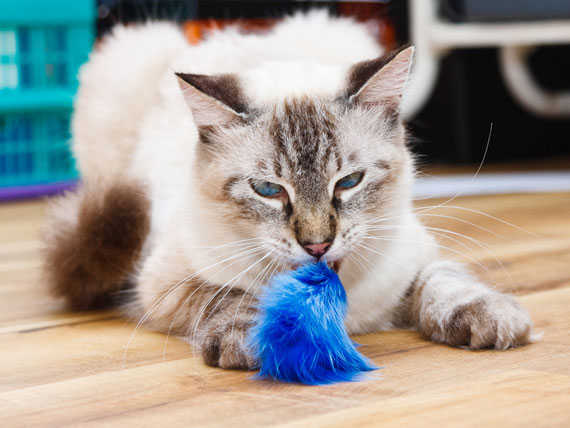 Does Your Aging Pet Need a New Diet and Lifestyle?
HOW DIET AND EXERCISE CAN MAKE YOUR SENIOR PE
Does Your Aging Pet Need a New Diet and Lifestyle?
HOW DIET AND EXERCISE CAN MAKE YOUR SENIOR PE
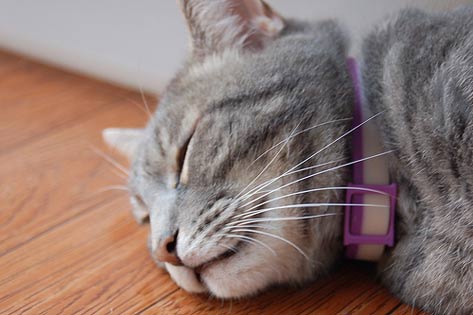 10 Ways to Stop Fleas from Biting Your Cat
By Jennifer Kvamme, DVM
There are l
10 Ways to Stop Fleas from Biting Your Cat
By Jennifer Kvamme, DVM
There are l
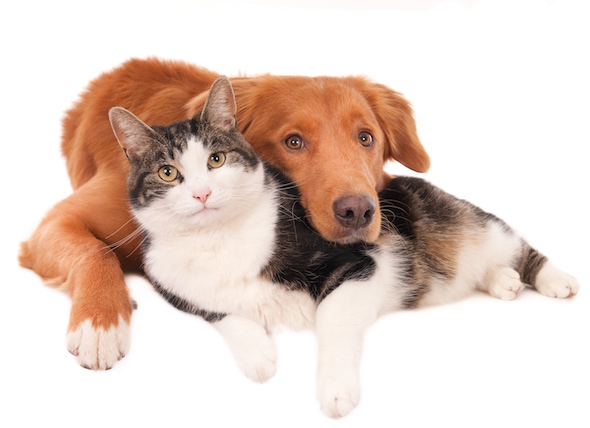 How to Introduce a Dog to a Cat
By Stacia Friedman
C
How to Introduce a Dog to a Cat
By Stacia Friedman
C
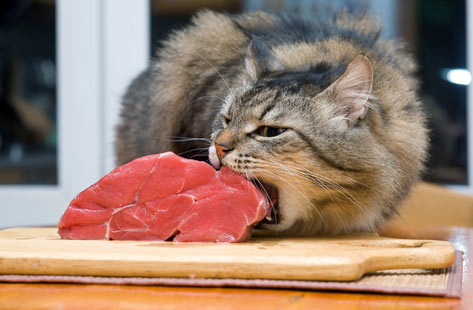 Origin of Raw Food Diet for Pets
History of Raw Pet Food
By Patrick Maha
Origin of Raw Food Diet for Pets
History of Raw Pet Food
By Patrick Maha
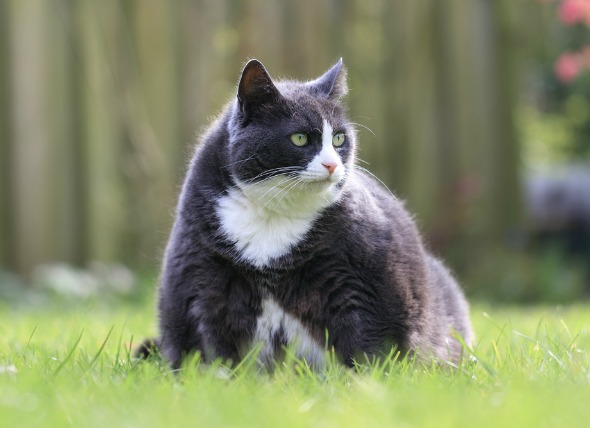 Obesity in Cats... and What to do About an Overweight Cat
Ever wonder what to do about your overweigh
Obesity in Cats... and What to do About an Overweight Cat
Ever wonder what to do about your overweigh